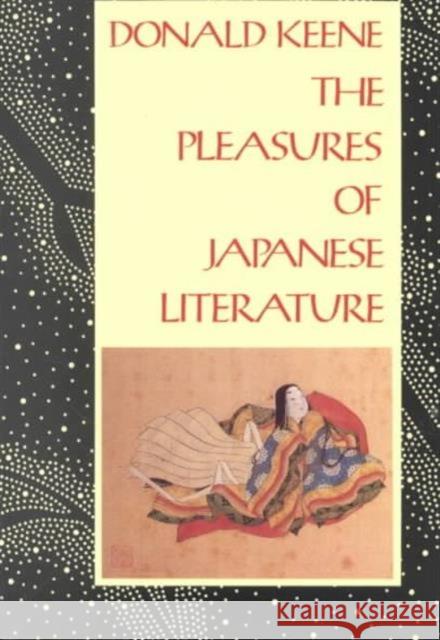The Pleasures of Japanese Literature » książka
topmenu
The Pleasures of Japanese Literature
ISBN-13: 9780231067379 / Angielski / Miękka / 1993 / 133 str.
Perhaps no one is more qualified to write about Japanese culture than Donald Keene, considered the leading interpreter of that nation's literature to the Western world. The author, editor, or translator of nearly three dozen books of criticism and works of literature, Keene now offers an enjoyable and beautifully written introduction to traditional Japanese culture for the general reader.
The book acquaints the reader with Japanese aesthetics, poetry, fiction, and theater, and offers Keene's appreciations of these topics. Based on lectures given at the New York Public Library, The Metropolitan Museum of Art, and the University of California, Los Angeles, the essays -though written by a renowned scholar- presuppose no knowledge of Japanese culture. Keene's deep learning, in fact, enables him to construct an overview as delightful to read as it is informative. His insights often illuminate aspects of traditional Japanese culture that endure today. One of these is the appreciation of "perishability." this appreciation os seen in countless little bits of Japanese life: in temples made of wood instead of durable materials; in the preference for objects -such as pottery- that are worn, broken, or used rather than new; and in the national love of the delicate cherry blossom, which normally falls after a brief three days of flowering. Keene quotes the fourteenth-century Buddhist monk Kenko, who wrote that "the most precious thing about life is its uncertainty." Throughout the volume, Keene demonstrates that the rich artistic and social traditions of Japan can indeed be understood by readers from our culture. This book will enlighten anyone interested in Japanese literature and culture.










